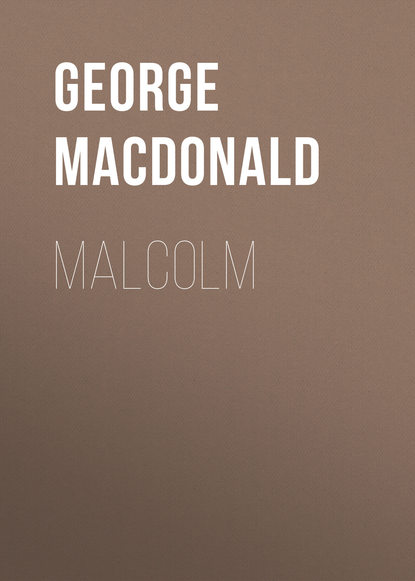По всем вопросам обращайтесь на: info@litportal.ru
(©) 2003-2025.
✖
Malcolm
Автор
Год написания книги
2018
Настройки чтения
Размер шрифта
Высота строк
Поля
The marquis was not etymologist enough to understand Malcolm's poor pun, and doubtless thought it worse than it was.
"I don't want any fooling," he said. "Of course you know these people?"
"Ilka man, wuman, an' bairn o' them," answered Malcolm.
"And what sort are they?"
"Siclike as ye micht expec'."
"That's not a very luminous answer."
"Weel, they're nae waur nor ither fowk, to begin wi'; an' gien this hauds, they'll be better nor mony."
"What sort are their leaders?"
"Guid, respectable fowk, my lord."
"Then there's not much harm in them?"
"There's nane but what they wad fain be rid o'. I canna say as muckle for a' 'at hings on to them. There's o' them, nae doobt, wha wad fain win to h'aven ohn left their sins ahin' them; but they get nae encouragement frae Maister MacLeod. Blue Peter, 'at gangs oot wi' 's i' yer lordship's boat—he's ane o' their best men—though he never gangs ayont prayin', tauld."
"Which is far enough, surely," said his lordship, who, belonging to the Episcopal church, had a different idea concerning the relative dignities of preaching and praying.
"Ay, for a body's sel', surely; but maybe no aye eneuch for ither fowk," answered Malcolm, always ready after his clumsy fashion.
"Have you been to any of these meetings?"
"I was at the first twa, my lord."
"Why not more?"
"I didna care muckle aboot them, an' I hae aye plenty to du. Besides, I can get mair oot o' Maister Graham wi' twa words o' a question nor the haill crew o' them could tell me atween this an' eternity."
"Well, I am going to trust you," said the marquis slowly, with an air of question rather than of statement.
"Ye may du that, my lord."
"You mean I may with safety?"
"I div mean that same, my lord."
"You can hold your tongue then?"
"I can, an' I wull my lord," said Malcolm; but added in haste, "—'cept it interfere wi' ony foregane agreement or nat'ral obligation."
It must be borne in mind that Malcolm was in the habit of discussing all sorts of questions with Mr Graham: some of the formulae wrought out between them he had made himself thoroughly master of.
"By Jupiter!" exclaimed the marquis, with a pause of amusement. "Well," he went on, "I suppose I must take you on your own terms.—They've been asking me to put a stop to these conventicles."
"Wha has, my lord?"
"That's my business."
"Lat it be nae ither body's, my lord."
"That's my intention. I told him I would go and myself."
"Jist like yer lordship!"
"What do you mean by that?"
"I was aye sure ye was for fair play, my lord."
"It's little enough I've ever had," said the marquis.
"Sae lang's we gie plenty, my lord, it maitters less hoo muckle we get. A'body likes to get it."
"That doctrine won't carry you far, my lad."
"Far eneuch, gien 't cairry me throu', my lord."
"How absolute the knave is!" said his lordship good humouredly. "—Well, but," he resumed, "—about these fishermen: only afraid Mr Cairns was right."
"What said he, my lord?"
"That, when they saw me there, they would fit their words to my ears."
"I ken them better nor ony black coat atween Cromarty an' Peterheid; an' I can tell yer lordship there winna be ae word o' differ for your bein' there."
"If only I could be there and not there both at once! There's no other sure mode of testing your assertion. What a pity the only thorough way should be an impossible one!"
"To a' practical purpose, it 's easy eneuch, my lord. Jist gang ohn be seen the first nicht, an' the neist gang in a co'ch an' fower. Syne compaur."
"Quite satisfactory, no doubt, if I could bring myself to do it; but, though I said I would, I don't like to interfere so far even as to go at all."
"At ony public meetin', my lord, ye hae as guid a richt to be present, as the puirest body i' the lan'. An' forbye that, as lord o' the place, ye hae a richt to ken what's gaein' on: I dinna ken hoo far the richt o' interferin' gangs; that's anither thing a'thegither."
"I see you're a thorough going rebel yourself."
"Naething o' the kind, my lord. only sae far o' yer lordship's min' 'at I like fair play—gien a body could only be aye richt sure what was fair play!"
"Yes, there's the very point!—certainly, at least, when the question comes to be of eavesdropping—not to mention that I could never condescend to play the spy."
"What a body has a richt to hear, he may hear as he likes—either shawin' himsel' or hidin' himsel'. An' it 's the only plan 'at 's fair to them, my lord. It's no 's gien yer lordship was lyin' in wait to du them a mischeef: ye want raither to du them a kin'ness, an' tak their pairt."
"I don't know that, Malcolm. It depends."
"It's plain yer lordship's prejudeezed i' their fawvour. Ony. gait sartin it 's fair play ye want; an' I canna for the life o' me see a hair o' wrang i' yer lordship's gaein' in a cogue, as auld Tammy Dyster ca's 't; for, at the warst, ye cud only interdick them, an' that ye cud du a' the same, whether ye gaed or no. An', gien ye be sae wulled, I can tak you an' my leddy whaur ye 'll hear ilka word 'at 's uttered, an' no a body get a glimp o' ye, mair nor gien ye was sittin' at yer ain fireside as ye are the noo."











